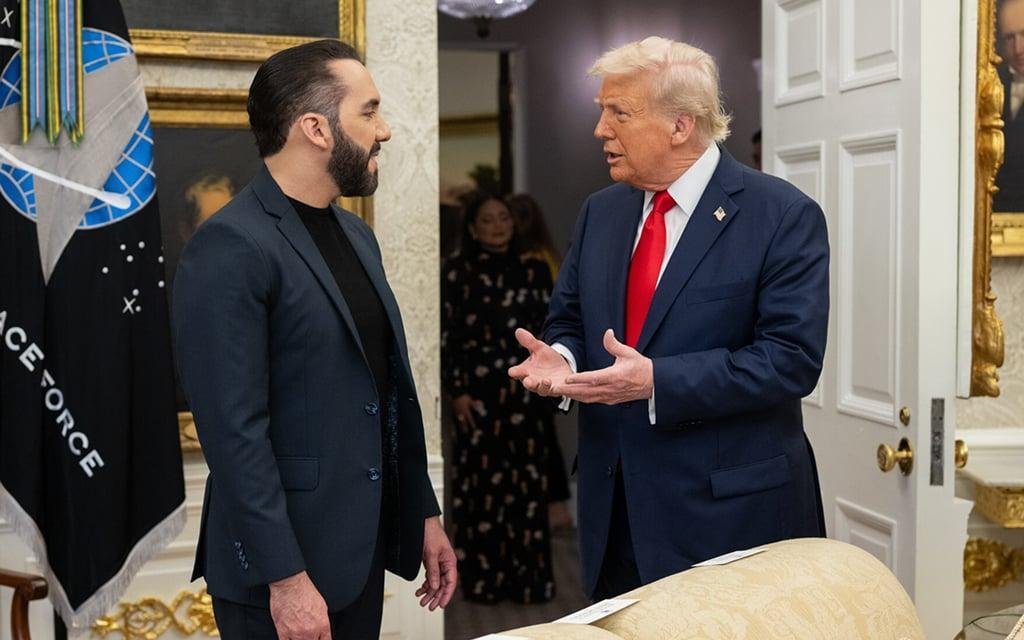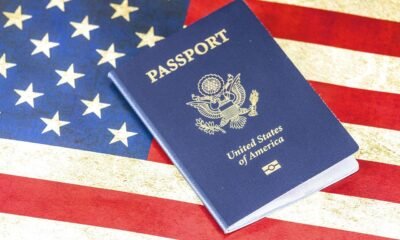crime
Trump’s Stance: Can ‘Home-Grown’ Criminals Be Deported Along with American Citizens?

President Donald Trump has suggested the controversial idea of deporting American citizens, raising alarm among legal experts who deem the notion not only unthinkable but fundamentally illegal. Bruce Fein, a constitutional lawyer and former associate deputy attorney general under President Ronald Reagan, stated, “You can’t deport a U.S. citizen, period.” Despite this widely held belief, Trump and his team are reportedly searching for loopholes to circumvent the law.
During a recent meeting with El Salvador’s President Nayib Bukele, Trump mentioned the need to address “homegrown” criminals in the U.S., insisting on the construction of additional detention facilities to house them. This comes as the U.S. has sent over 200 migrants to El Salvador in recent weeks, with several individuals detained in a high-security prison.
Among those deported was Kilmar Abrego Garcia, a Maryland resident who was flown to El Salvador despite having a 2019 order protecting him from deportation. Federal authorities ignored a court order to reverse his flight. Similarly, despite acknowledging a deportation error, U.S. officials maintain that they would re-deport Garcia if returned to the U.S. Garcia and his supporters contest the accusations of gang ties, highlighting the lack of evidence against him.
Rep. Yassamin Ansari, D-Phoenix, expressed concern over the implications of Garcia’s deportation, stating, “If this can happen to Mr. Garcia, it can happen to any of us.” She condemned Trump’s statements about targeting “homegrowns,” which point to potential abuses of executive power. These sentiments resonate with other Democratic lawmakers visiting El Salvador to address the ongoing situation.
The 4th Circuit U.S. Court of Appeals recently rejected an administration request to shield officials involved in the Garcia case from deposition, highlighting the court’s concerns about the potential for unconstitutional deportations. Judge J. Harvie Wilkinson warned of a future where American citizens might face exile without due process, questioning the extent of executive power in such scenarios.
White House Press Secretary Karoline Leavitt affirmed Trump’s seriousness regarding the deportation of American criminals, suggesting a clearer focus on removing violent offenders from communities. Trump has also made broader immigration promises, vowing to deport millions of undocumented immigrants and to challenge birthright citizenship laws.
Experts like immigration attorney Juan Rocha argue that Trump’s rhetoric aims to instill fear among immigrants and discourage new arrivals. Custom and Border Protection’s recent report of a 14% decline in illegal border crossings may reflect the effectiveness of such tactics. Legal scholars emphasize the complexity of deporting naturalized citizens, noting significant barriers to revoking citizenship for natural-born individuals.
Despite Trump’s past defiance of court orders and increasing scrutiny over his administration’s actions, legal experts like David Bier from the Cato Institute voice concern over the potential for continued violations of constitutional rights. Stuart Streichler, a constitutional law professor, concludes that recent developments represent a critical examination of the boundaries of executive authority.


















